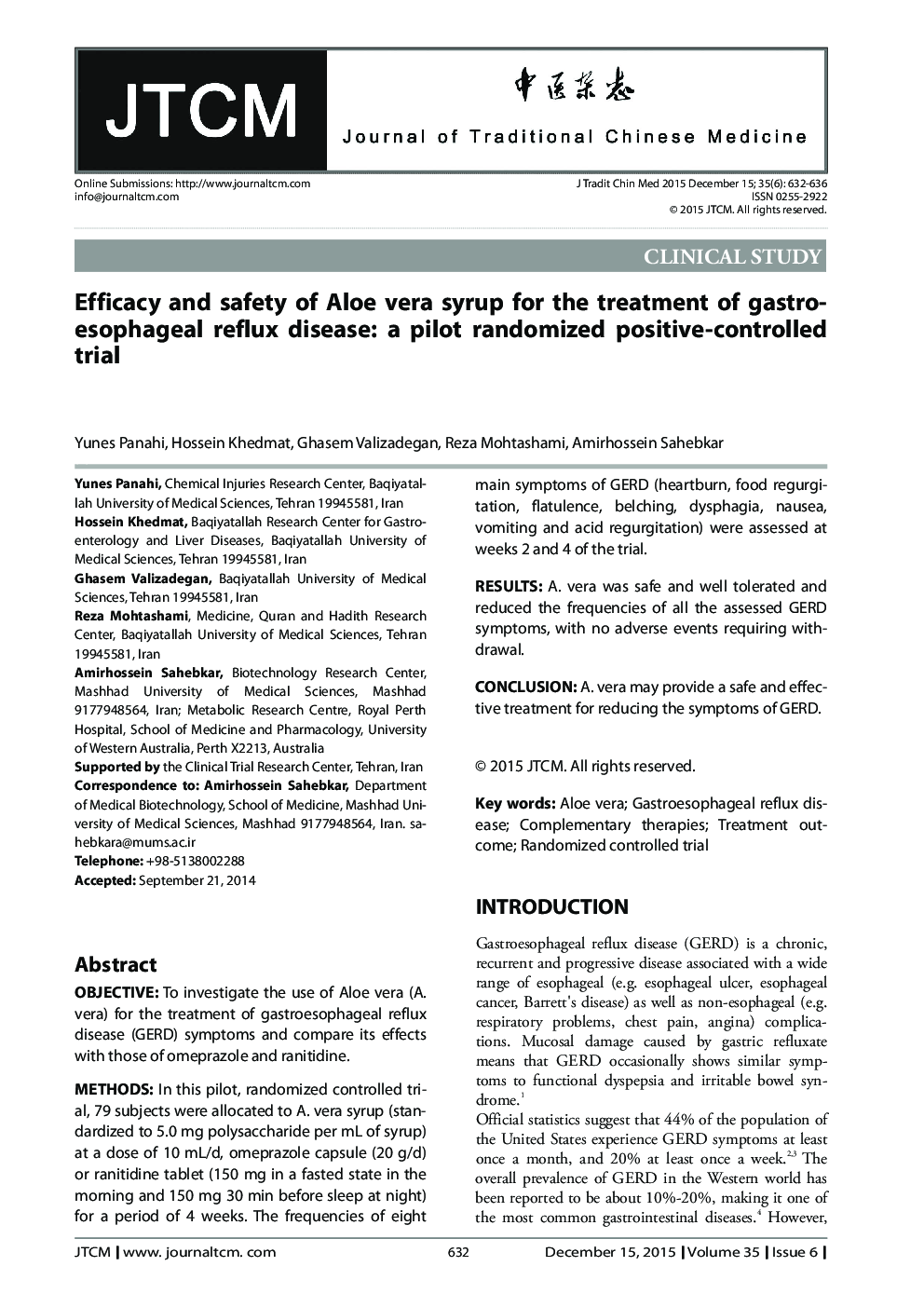| Article ID | Journal | Published Year | Pages | File Type |
|---|---|---|---|---|
| 4201117 | Journal of Traditional Chinese Medicine | 2015 | 5 Pages |
ObjectiveTo investigate the use of Aloe vera (A. vera) for the treatment of gastroesophageal reflux disease (GERD) symptoms and compare its effects with those of omeprazole and ranitidine.MethodsIn this pilot, randomized controlled trial, 79 subjects were allocated to A. vera syrup (standardized to 5.0 mg polysaccharide per mL of syrup) at a dose of 10 mL/d, omeprazole capsule (20 g/d) or ranitidine tablet (150 mg in a fasted state in the morning and 150 mg 30 min before sleep at night) for a period of 4 weeks. The frequencies of eight main symptoms of GERD (heartburn, food regurgitation, flatulence, belching, dysphagia, nausea, vomiting and acid regurgitation) were assessed at weeks 2 and 4 of the trial.ResultsA. vera was safe and well tolerated and reduced the frequencies of all the assessed GERD symptoms, with no adverse events requiring withdrawal.ConclusionA. vera may provide a safe and effective treatment for reducing the symptoms of GERD.
